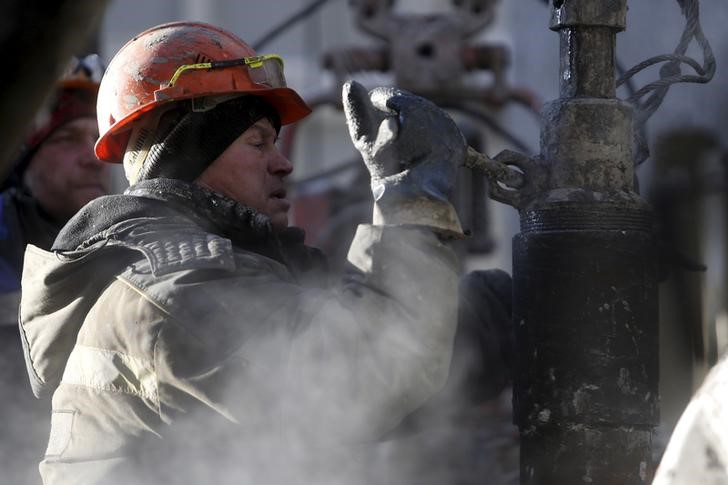By Peter Nurse
Investing.com -- Oil prices dropped sharply Monday as moves to curb the spread of the Omicron variant of the Covid-19 virus in Europe and the U.S. raised fears that global crude demand will take another hit.
By 9:30 AM ET (1430 GMT), U.S. crude futures traded 4.3% lower at $67.81 a barrel, and the Brent contract fell 3.5% to $70.94.
U.S. Gasoline RBOB Futures were down 2.4% at $2.0713 a gallon.
The Netherlands went into lockdown on Sunday, while the U.K. and Germany are considering the idea of more Covid-19 restrictions ahead of the Christmas and New Year holidays.
In the U.S., the World Health Organization said on Saturday that the Omicron variant had been found in 43 of the 50 U.S. states, while hospitalizations for Covid-19 have jumped 45% over the last month, and confirmed cases have increased 40% to a weeklong average of 123,000 new U.S. infections a day.
Adding to the bearish sentiment was the news that President Joe Biden’s $1.75 trillion domestic investment bill is now unlikely to pass through the Senate in its current form, denying the U.S. economy of another jolt of stimulus.
Influential investment bank Goldman Sachs cut its U.S. GDP forecasts for the first three quarters of next year as a result.
“With a sword hanging over the outlook for economic growth and little prospect of more stimulus to counter the slowdown, risk aversion is the name of the game on Monday,” said analysts at XM Group, in a note.
Also weighing was the U.S. oil and gas rig count, an early indicator of future output, rose by three to 579 in the week to Dec. 17, its highest since April 2020, according to a report from Baker Hughes, released Friday.
Still, that report is linked to future output while Libya’s largest oil field is currently shut down, taking 284,000 barrels a day of output offline, barely a week before national elections due in the country.
Also, the Organization of the Petroleum Exporting Countries, Russia and allies, together known as OPEC+, said at their last meeting in early December that they could meet ahead of their scheduled Jan. 4 meeting if Omicron hits oil demand severely.
It’s the fear that increases in supply will be too slow to keep up with record demand when the global economy does finally recover from the ravages of the Covid outbreak that prompted Goldman Sachs to say last week that prices at $100 a barrel cannot be ruled out in 2023.
